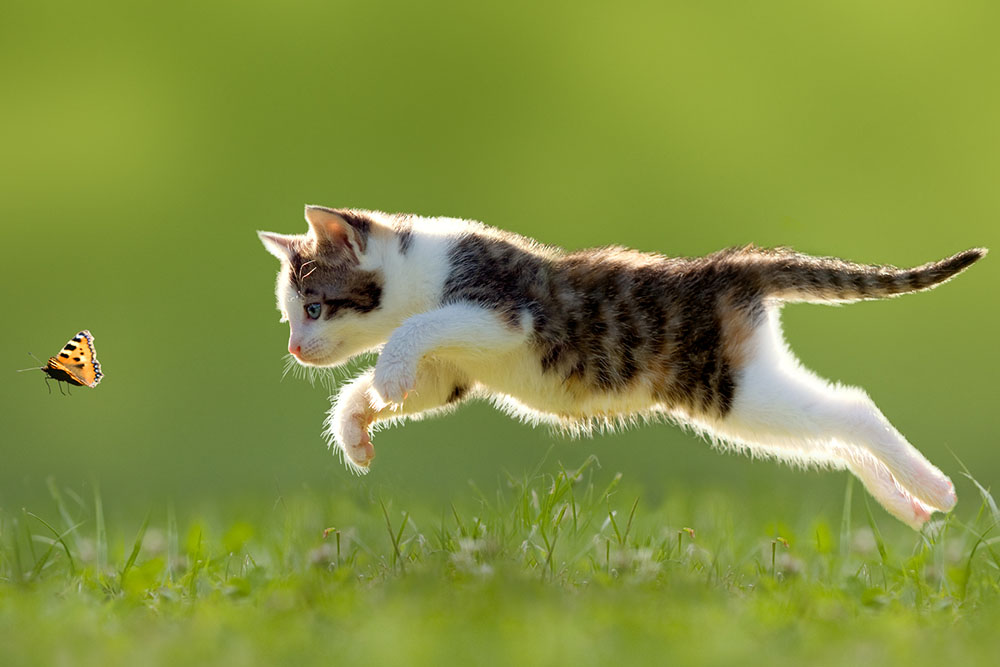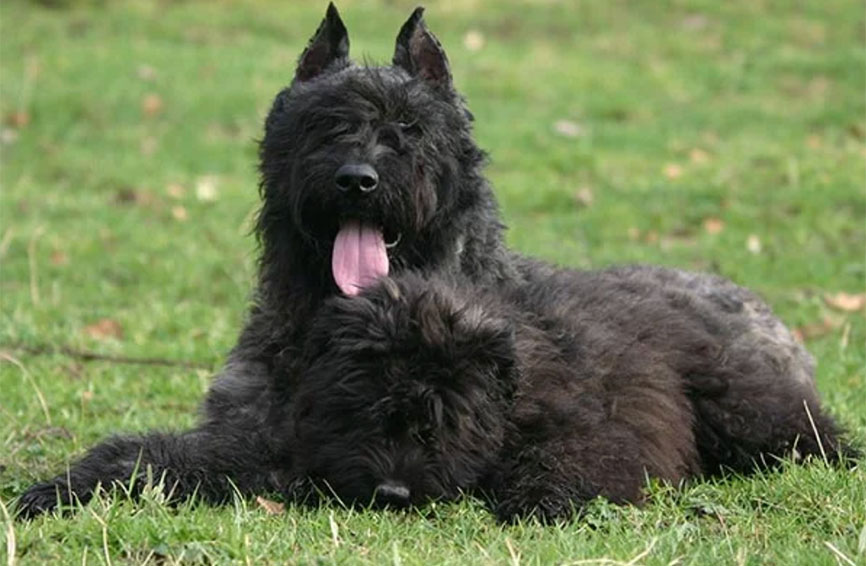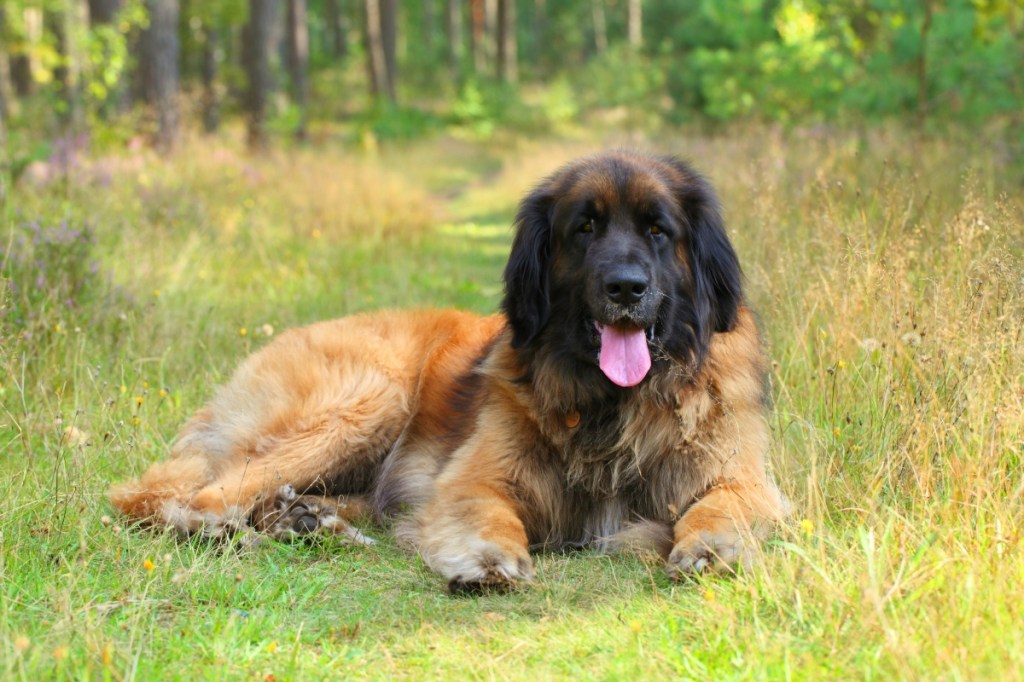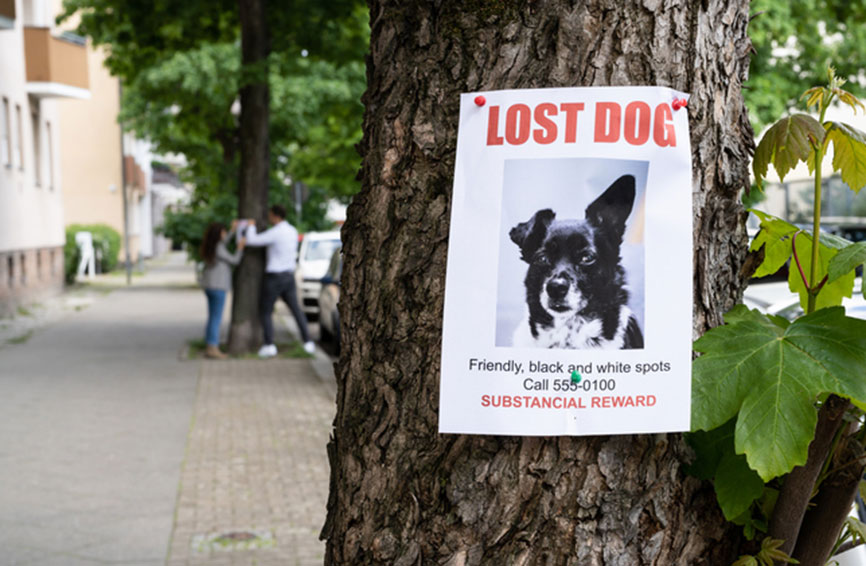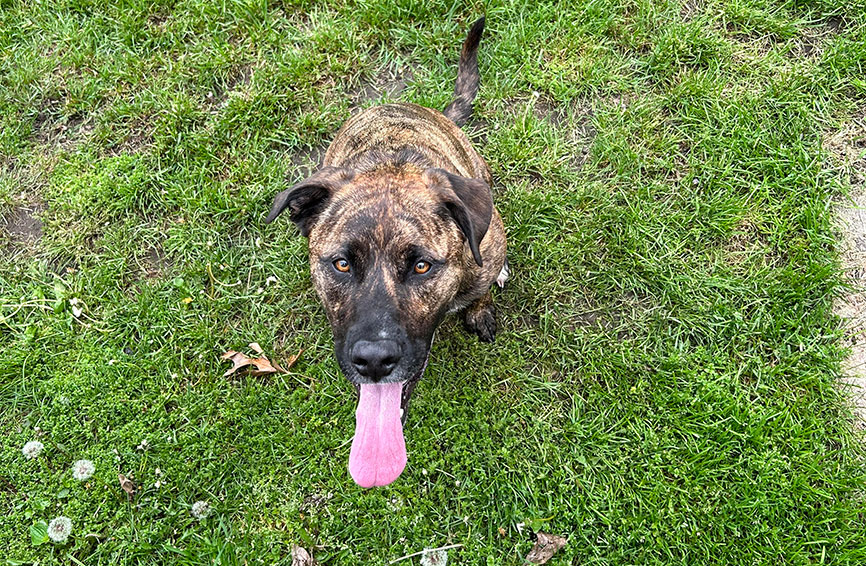Table of Contents
While most of us associate this time of year with longer days and warmer weather, the change of season brings potential spring hazards for your pet.
Pets who may have been cooped up all winter are suddenly more susceptible to toxic plants, exposure to harmful chemicals, activity-related injuries and overexertion, parasitic diseases and chance encounters with wildlife that may be hostile.
Seasonal allergies
Just like humans, dogs and cats can experience seasonal allergies, one of the spring hazards for your pet. Airborne allergens are usually to blame for dogs’ allergies, but instead of affecting the respiratory system – as they do in humans – they cause extreme itchiness. Pollen, mold, dander and any airborne particle are among the most common triggers of seasonal allergies in pets, and symptoms include sneezing, coughing, excessive scratching, licking and chewing.
Allergies can be extremely uncomfortable for your pet, so if you see these symptoms, consult your veterinarian to determine the appropriate treatment. Read about the case of Rue, whose life improved markedly when she received allergy shots.
 Spring flowers and plants
Spring flowers and plants
Nothing says spring like freshly cut flowers and garden planning, but those beautiful bouquets and new plants are one of the spring hazards for your pet. In fact, 700 types of plants are toxic to animals.
Lilies, in particular, are extremely toxic to all pets and can be deadly when consumed by cats. All parts of the plant, including the pollen, flower and leaves, are poisonous. If you plan to have lilies in the house, keep them well out of reach. Pet parent Missy almost lost her cat Blue to lilies.
Using natural products in your garden is best for your pet, as fertilizers, herbicides and insecticides are highly toxic. Even mulch can be unsafe as it sometimes contains coffee grounds, which, when accidentally eaten, can lead to caffeine toxicity.
If you do use these products, keep your pet out of the areas where they are applied.
When planting your spring garden, here are a few flowers and plants you’ll want to avoid, according to the pet poison hotline:
- Azaleas
- Sago palms
- Rhododendrons
- Amaryllis
- Crocus
- Oleander
- Cyclamen
- Daffodils
- Tulips and Hyacinths
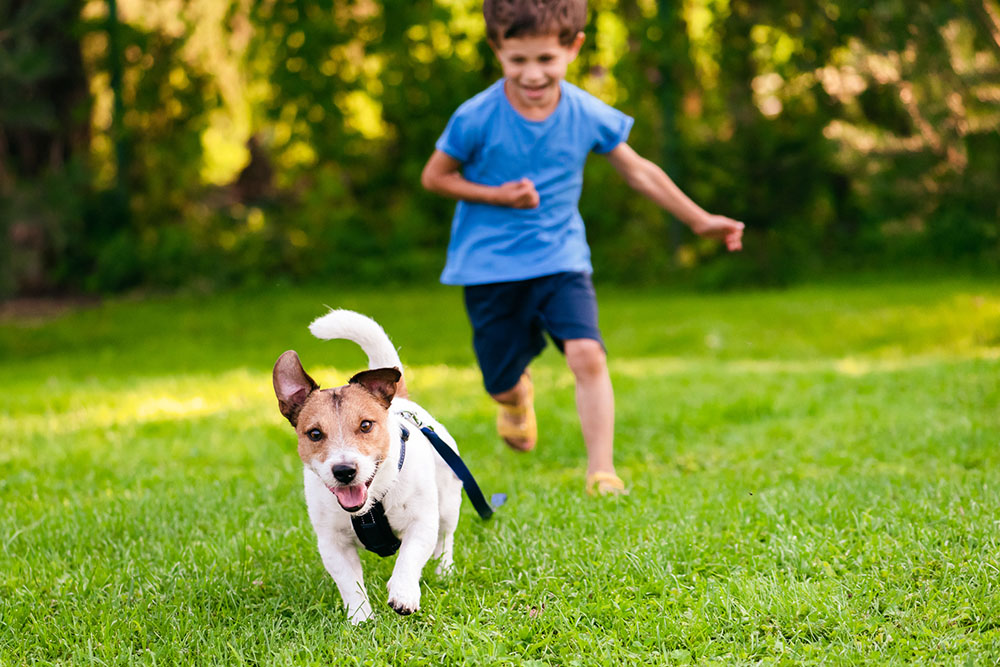
Sun damage and heat stroke
It’s tempting to want to be outside and play hard as the days get longer, but watch out for overexposure to UV rays and overheating. Sunny days can even be a risk for indoor pets that like to sleep by a window. Animals with white coats and pale skin around their noses and eyes are generally more susceptible to skin cancers. These pets especially should not spend too much time in the sun. If they’re going to be outside for long periods, you can invest in protective clothing to keep them safe.
Among the spring hazards for your pet, heatstroke can be deadly and it can come on very quickly. When playing outside with dogs, keep an eye on them for signs of overheating: excessive panting, difficulty breathing, drooling, vomiting or collapse. Give your dog plenty of fresh water and a shady spot where he can take a break from the sun.
And unless you own a Tesla with “pet mode”, never leave your pet unattended in a car, even for a few minutes. Even on a pleasant 75°F day, it will take only 10 minutes to reach 100°F inside the car. Even a 60°F degree day can turn deadly for a pet in a car.
Bugs
Bugs become more prevalent in warmer weather. Use flea, tick and heartworm preventives, carry a tick removal tool and steer clear of ant and wasp nests. After walks in wooded or grassy areas, check your pet for ticks.
Car rides
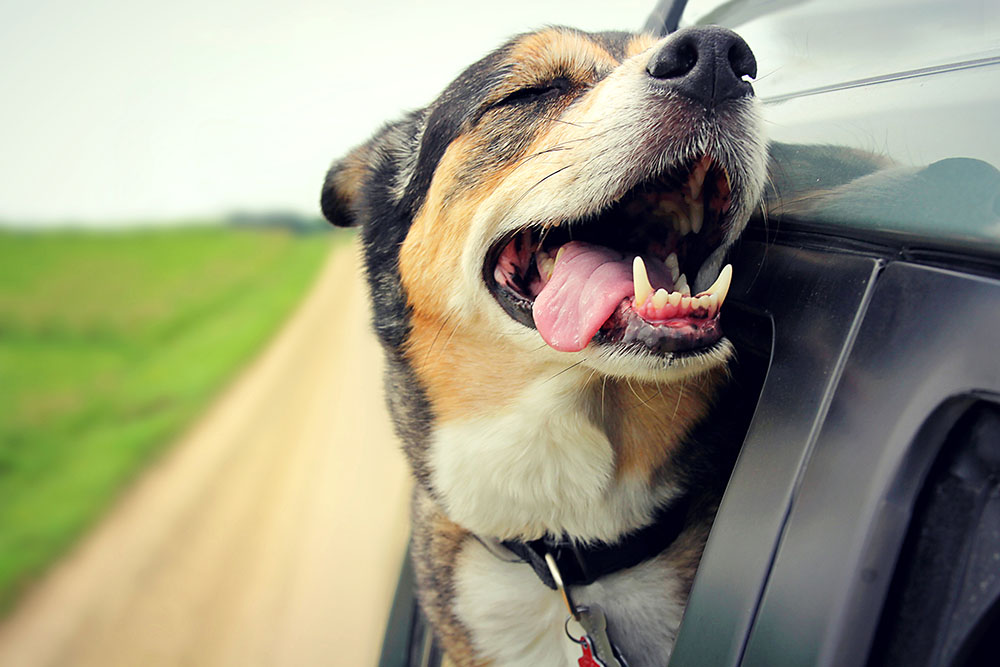
Whether you’re heading out on the open road with your pup or just going for a short drive, ensure she is properly secured inside the car, preferably in a crate or restraining device. As cute as it may be, dogs dangling their heads out the car window can be dangerous. Keep your dog inside the car to keep her from falling out of the vehicle or being hit by debris. And never drive around with your dog in the back of a pickup truck unless she is in a crate.
Open windows
Ahh, opening the windows to let the fresh air in is a ritual of spring. Kitties love sitting in windows or sprawling out in front of sun-drenched doors. Make sure any potential escape points are locked up and fully secure. This is especially important if you live in a multistory building.
Toxic cleaning chemicals
Annual spring cleaning is a spring hazard for your pet and can expose them to harmful chemicals like ammonia, bleach and formaldehyde. Keep your pets in a separate room until all recently cleaned surfaces are dry. And don’t forget to spring clean for your pets too.
Mating season
Spring is mating season, especially for cats. According to the ASPCA, 1.5 million unwanted cats and dogs are euthanized each year. Make sure your pets are spayed and neutered as soon as they are old enough (6-9 months for dogs; 5 months for cats) to avoid unwanted pregnancies. Spaying and neutering will also eliminate annoying mating behavior such as humping, vocalizing, spraying and rubbing their hind end on furniture and human legs.
Stagnant water
April showers bring puddles. Don’t let your dog drink from stagnant water sources such as puddles or lakes. This can lead to gastrointestinal upset from giardia or more serious health conditions like leptospirosis, a bacterial infection that can cause severe damage to the kidneys and liver.
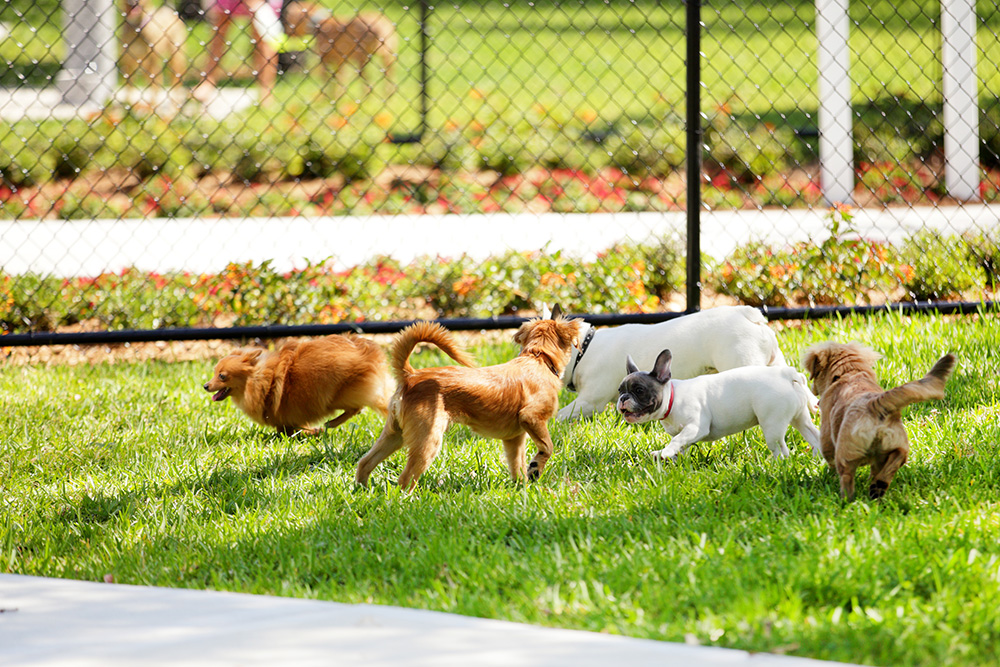
Dog parks
Before bringing your pup to the dog park, ensure he is up to date on all his vaccinations, especially the Bordetella vaccine, which prevents kennel cough. Keep a close eye on your pup while in the park to avoid fights with other dogs or escape through a gate that was accidentally left open.
Rat poison and insecticides
Anything designed to kill insects, rodents or other pests could prove fatal to your pet, too. If your pet ingests rat poison, you have about an hour to get her to the vet to induce vomiting or administer a prescription antidote. Zinc phosphide, a poison used to kill rats, gophers and moles, is equally dangerous.
Pets exposed to insecticides in small amounts may not immediately show signs of poisoning, but if they start to indicate lethargy, loss of appetite, fever, vomiting or diarrhea, see a veterinarian immediately so they can be stabilized and decontaminated.
Avoid these toxins and research safer, pet-friendly ways to keep pests at bay, or make sure to keep all poisons in labeled, tightly sealed containers out of your pet’s reach.
Wild animals
As warmer weather brings out people and their pets, it also means wild animals are coming out of hibernation or winter hiding spots. Hawks, eagles, foxes, bears, snakes and cougars are often on the hunt for food after the scarcity of winter food sources. Cats and small dogs should not be left outside alone and unmonitored, even in urban areas, as wild animals are increasingly creeping into cities. They also can carry viruses that pets may be susceptible to if bitten. Keep dogs leashed during hikes to prevent them from harassing wildlife or getting into a confrontation. See more tips here on how to avoid encounters.
Easter candy and toys
The Easter Bunny may leave fun treats for human kids, but many of them can be downright dangerous to your four-legged family members. Keep any Easter treats containing raisins, alcohol, chocolate and Xylitol (found in sugar-free and low-calorie products such as gum, candy and even peanut butter) well out of paws’ reach. Plastic eggs or small toys can also present a choking hazard, while the strings of neon green Easter grass can cause stomach issues if ingested by a curious cat.

